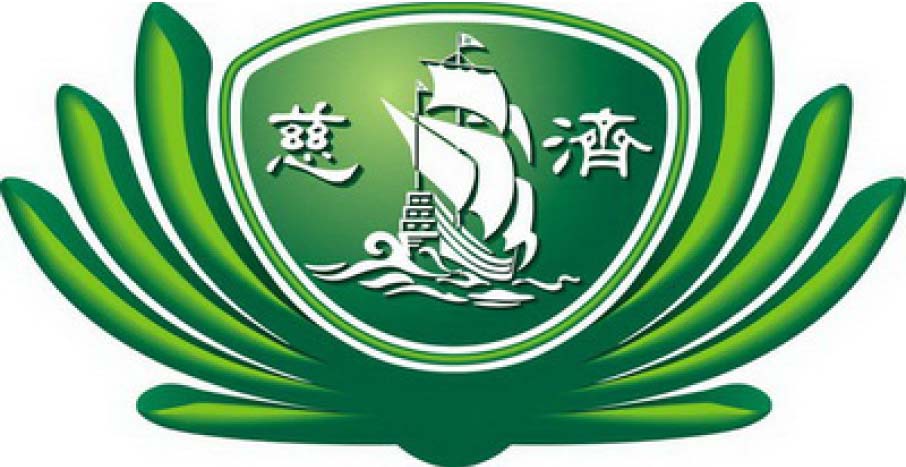Tzu Chi (慈濟), means compassion 慈 and relief 濟. The Tzu Chi logo consists of a ship that bears the lotus fruit and flower, symbolizing the belief that the world can be made a better place by planting good karmic seeds. Followers believe that these seeds are required for flowers to bloom and bear fruit, which is a metaphor for their beliefs that a better society can be created with good actions and pure thoughts.
The ship represents Tzu Chi steering a ship of compassion, representing their goal in saving all beings that suffer, while the Eight Petals represent the Noble Eightfold Path in Buddhism, which Tzu Chi uses as their guide.
The mother organization in Taiwan 佛教慈濟慈善事業基金會 is now 50 years old. It was founded as a charity organization by the Buddhist nun Dharma Master Cheng Yen on May 14, 1966 in Hualien, Taiwan. Master Yen teaches that “to save the world, we must first believe in transforming human hearts.”
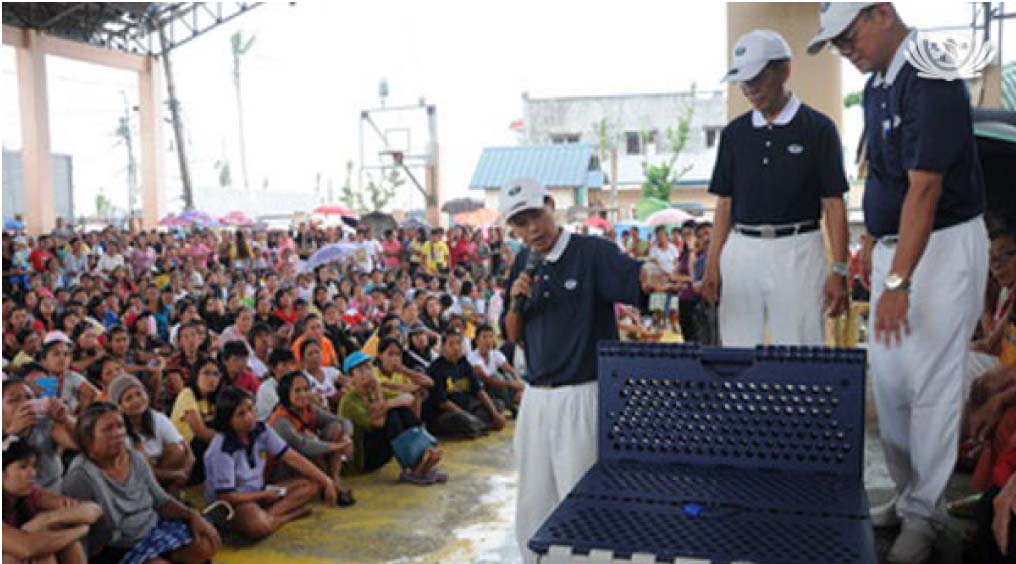
It is unique among other Buddhist organizations in Taiwan and elsewhere in that first, it was founded by a female; second, the founder is not a Buddhist scholar who promotes a specific interpretation of Buddhism; and last but most importantly, it was not started as a religious movement but as a charitable one which focuses primarily on humanitarianism and community service rather than Buddhist spiritual development.
Master Yen believes that when “one helps those in need and becomes aware of the harsh realities of life, one finds spiritual happiness through giving.”
Tzu Chi emphasizes that there should be no obvert “religious conversion” in any of its activities. The organization believes that there is no need to convert others. When others see how Buddhist beliefs and teachings guide the thoughts and actions of its volunteers, then they see Buddhism with a different eye and learn to respect and admire the teachings of Buddha.
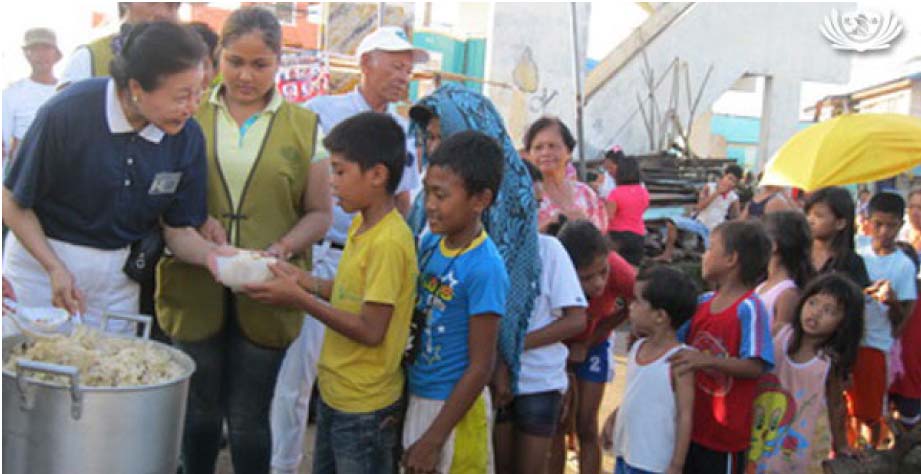
Tzu Chi respects all religions and has, in fact, helped rebuild churches and worship places in areas where faith forms an important guiding post for everyday living. The common language of Da Ai (大愛 or great love) binds all religions as one, Master Cheng Yen teaches.
It has been awarded a special consultative status at the United Nations Economic and Social Council. In 1991, Master Cheng Yen received a Ramon Magsaysay Award, Asia’s equivalent of the Nobel Prize, for Community Leadership.
The group has grown to become a significant actor in civil society, with approximately 10 million volunteers spread out in chapters in 52 countries.
Tzu Chi started with Charity as its main focus but later included three other causes – medicine, education and humanity – which, strictly, is still part of its work on charity. Its official motto follows the concept of “Four endeavors, eight footprints (四大志業,八大腳印).” The four endeavors are the four major causes while the eight footprints are charity causes, medical contributions, education development, humanities, international disaster assistance, bone-marrow donation, community volunteerism and environmental protection.
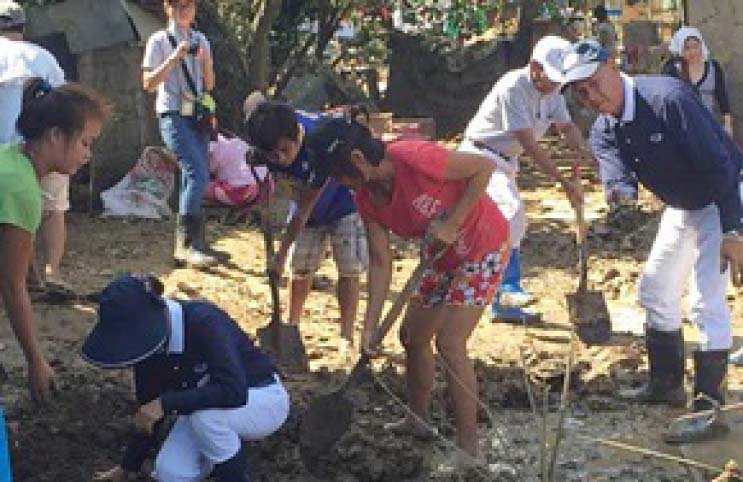
Tzu Chi Foundation Philippines was organized in 1994 by a group of Tsinoy businessmen and women. It organized its first relief work in Mindoro after the 7.1-magnitude earthquake in 1994. Today, Tzu Chi has a complement of 1,500 volunteers in Metro Manila. Among them are native Filipinos.
“Anyone can become a Tzu Chi volunteer – regardless of age, race, religious belief or social status. The primary requirement is a loving heart to serve our society,” Alfredo Li, president of Tzu Chi Philippines said.
Most of the Tzu Chi Filipino volunteers are themselves beneficiaries of Tzu Chi’s medical assistance. They are touched by the generous and selfless love within Tzu Chi so that they wanted to give a part of themselves.
Volunteers have to undergo training to become full-fledged volunteers. Those with financial capability donate money, and help collect donations from relatives and friends. Those without money give of themselves, their time and energy are donated to help implement the projects of the foundation.
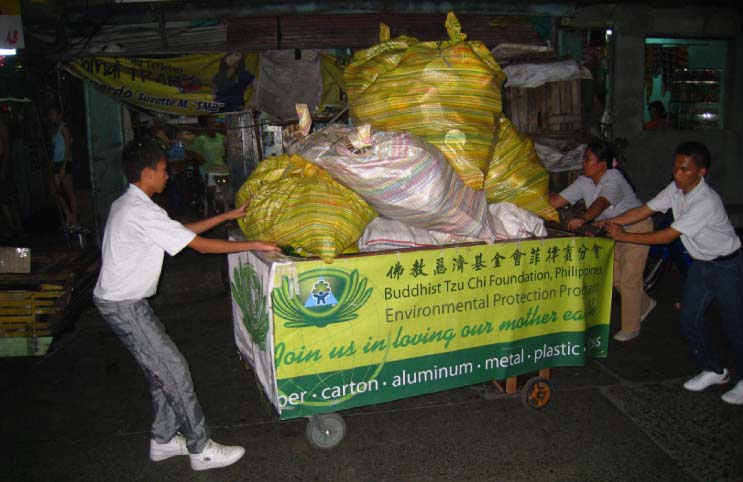
Li became active in Tzu Chi because “when I was small, my parents inculcated in me to give back to society and share what I got from society. When I attained financial independence, Tzu Chi gave me the opportunity to fulfill my parents’ wish and I myself got great personal fulfillment in the work that I am privileged to do for Tzu Chi.”
Another volunteer, Ka Kuen Chua, an architect and the chairman of Movement for Restoration of Peace and Order, shares, “I was given the gift of a second life after I was kidnapped. The better way to spend this second life is serving the less fortunate through Tzu Chi and other organizations like MRPO and Kaisa.” — First published in Tulay Fortnightly, Chinese-Filipino Digest 29, no. 14 (December 20, 2016-January 16, 2017): 10.
